
SDG 17: Partnerships for the Goals 2025 Report
SDG 17 - Partnerships for the Goals
Strengthen the means of implementation and revitalise the global partnership for sustainable development
The University supports SDG 17 through strategic partnerships, global research collaborations, and community engagement. It influences policy development via research groups like EEERG, collaborates globally on sustainability projects, and partners with NGOs to address real-world challenges. Through embedded sustainability education across all levels, including the compulsory Global Professional Award and postgraduate programmes, the University fosters global citizenship and promotes long-term sustainable development.
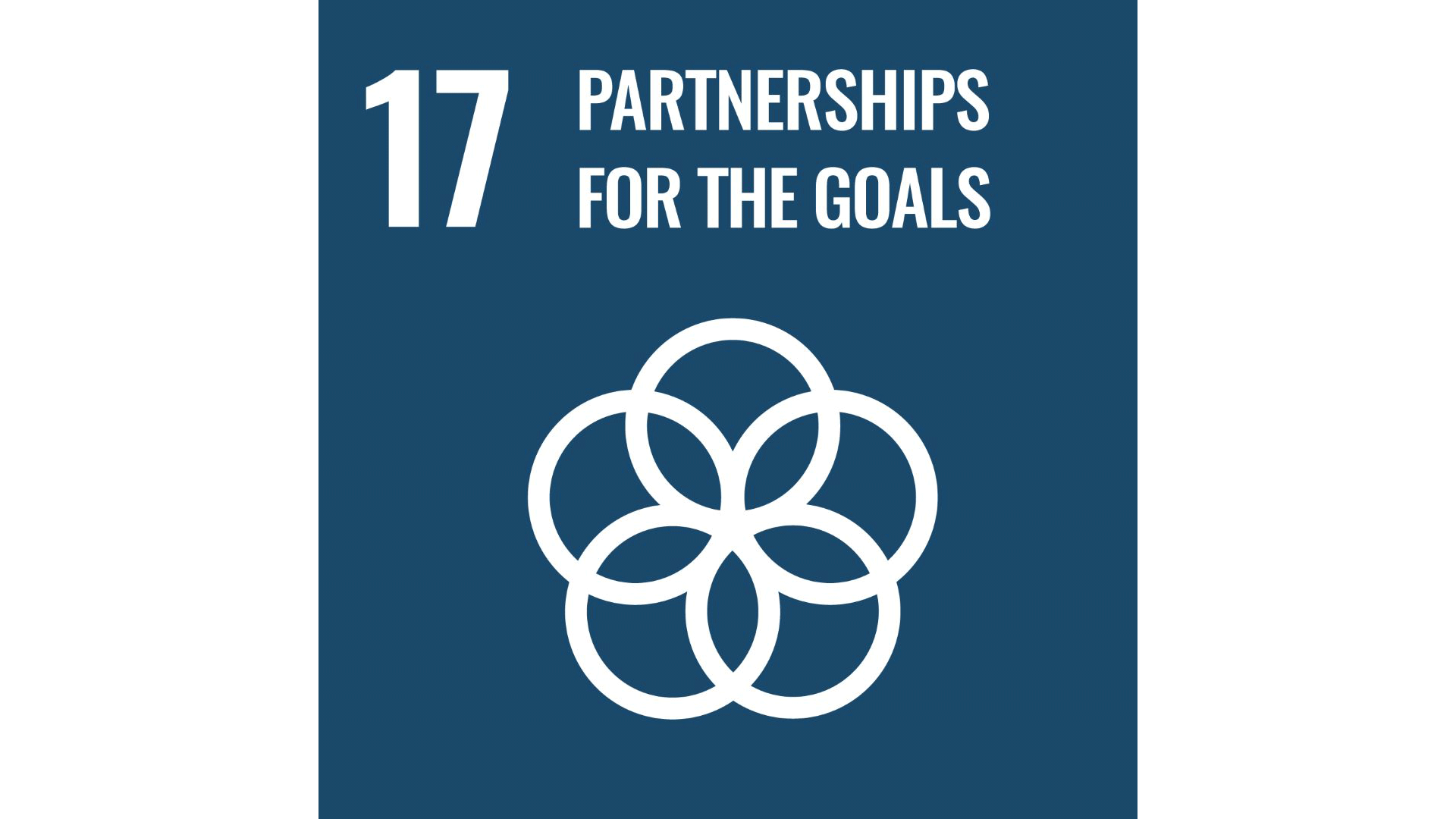
Relationships to support goal policy development
Our Strategy Map (2019-2025) commits to expanding our already extensive external engagement, including being directly involved with government SDG policy development. The University’s Energy, Emissions and Environment Research Group (EEERG) supports governments in clean energy and energy-efficient technology policy development, at a local regional, national and international level. Their work focuses on supporting national energy needs through research supported by the government, industry and the EU. EEERG is developing new networks which are generating research and development projects in the area of innovative and effective conventional and renewable energy systems.
Initiation and participation in cross-sectoral dialogue about the goals
Examples of the many workshops, conferences and other interactions with governments, NGOs, and others relevant to the SDGs include the University’s Global Disaster Resilience Centre (GDRC), which is a global leader in multi-disciplinary research, education and advocacy to improve the resilience of nations and communities. It collaborates with higher education, government, private sector and non-government partners around the world through international conferences (lead/co-organiser), delivery of workshops (as facilitators/organisers), invited talks and keynote speeches and appearance as moderator/panellist in international events and in the media. The research centre was a founder of the International Conference on Building Resilience Series; conferences and symposiums include The International Conference on Sustainable Built Environment in Sri Lanka (Dec 2023), and the International Symposium on Disaster Resilience and Sustainable Development, Thailand (Dec 2023).
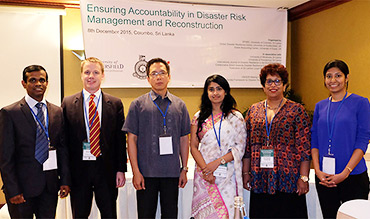
International collaboration in gathering and measuring data related to the goals
Huddersfield colleagues are extensively involved in data gathering and measurement related to the SDG goals, working on a variety of impactful international collaborations.
For example, Dr Thanos Angelis-Dimakis leads Huddersfield's contribution to the FRIETS project working with 13 partners from Greece, Cyprus, Malta, Romania and England, towards increasing the shelf-life of berries through the integration of precision agriculture strategies, edible coating and innovative methods of dehydration. The four-year project will see researchers taking part in 116 knowledge and research exchange trips between the partners involved. Life Cycle Analysis and Life Cycle Cost Analysis is being studied throughout the value chain, by various partners including the University of Huddersfield, to determine the environmental impacts and identify the points that cause the most serious environmental burdens, providing sustainable solutions at a reasonable cost.
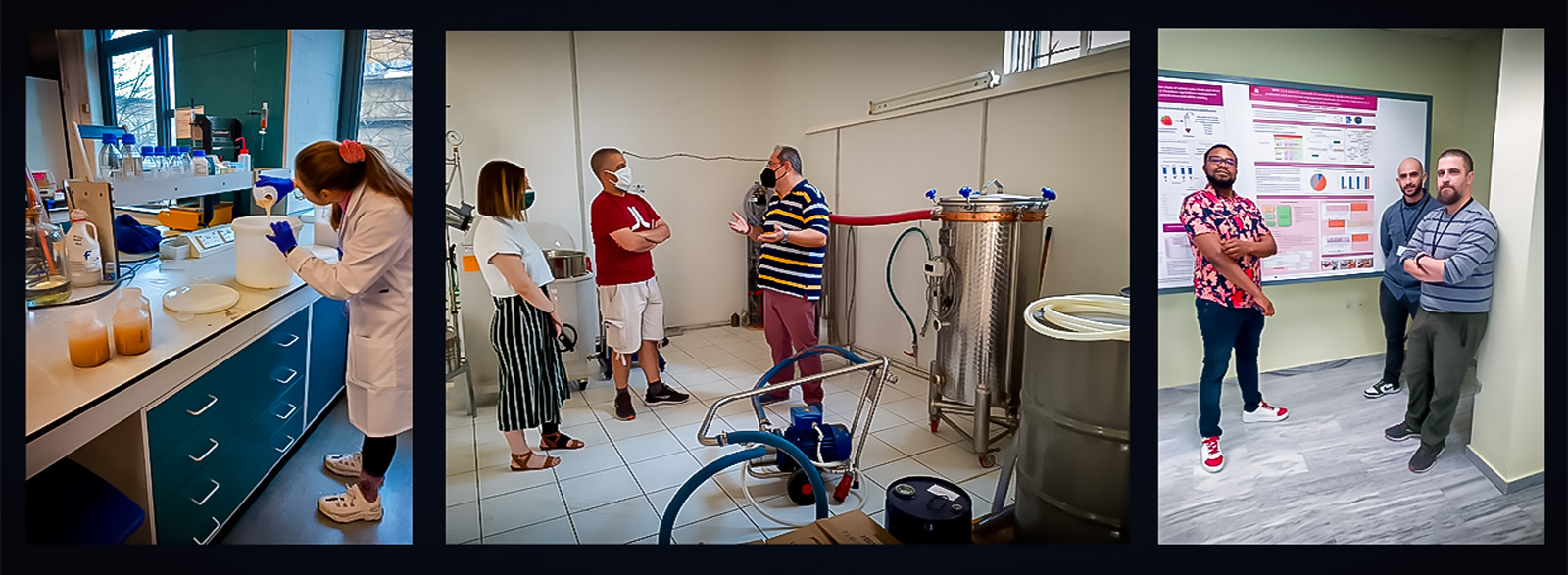
Work to review comparative approaches and develop international best practice on tackling the goals
The University of Huddersfield’s Dr Thanos Angelis-Dimakis and Professor Parik Goswami are a key part of the interdisciplinary five-year project Theseus, an EU –funded collaboration to create a first-of-its-kind Hub for Circularity in the capital region of Greece. By 2050, the 46-organisation-strong collaboration aims to become climate neutral, by validating new or existing technologies and by developing circular solutions for water, energy and materials such as textiles, plastics, glass, metals and mixed urban waste. Water, energy and material flows were targeted due to their high potential of transferring best practice solutions uncovered through the project to other EU regions.
Collaboration with Non-Governmental Organisations (NGOs)
The University collaborates with NGOs to tackle the SDGs through student volunteering initiatives, research programmes and the development of educational resources.
Huddersfield’s Students Union supports students to volunteer with organisations in their local community. Partnerships with local charities in and around the region have meant students can volunteer to support organisations such as Oxfam, The Welcome Centre, British Heart Foundation and The Access Project.

Global Disaster Resilience Centre (GDRC)
University of Huddersfield
The University’s Global Disaster Resilience Centre (GDRC)'s postgraduate research degree programmes are aimed at researchers, academics, policy makers and other professionals working with responsibilities related to disaster resilience, disaster risk reduction, humanitarian architecture, social media and communication, urban planning and city resilience and post disaster reconstruction. NGO collaborators on research projects undertaken by GDRC members and research students include Commonwealth Association of Planners (CAP), Resilient Cities Network and World Vision. Learning resources developed by the work of GDRC include PhD MOOC modules and recorded lectures on topics such as Disaster Risk Management, Climate Change and Development and Climate Change and Disaster Risk Reduction.
Commitment to meaningful education
The annual Teaching and Learning Conference enables peer led workshops to share best practice and enable discussion on methods to incorporate ESD into module design. Examples include the School of Applied Sciences who have mapped their geosciences courses to the SDGs, and the Huddersfield Business School who have been longstanding advanced signatories to the UN Principles for Responsible Management Education (PRME).
The University has adopted a top-level strategic commitment to ‘Enable all students to become inspiring and enterprising global professionals and achieve career and personal success’, and to ‘Create an inclusive globally aware community providing a world-leading and inspiring student experience’. This is manifest in the Global Professional Award (GPA), which is mandatory for all undergraduate students at the University. The GPA has three areas of focus: employability and enterprise; wellbeing; and global citizenship skills.
Specific courses on sustainability
The UN's Sustainable Development Goals are a key focus throughout the three years of the GPA. During interactive workshops, students are introduced to the concept and purpose of the SDGs from their first year. They research and analyse issues related to a number of the SDGs and are asked to work collaboratively to consider possible solutions on local and global scales.
In years 2 and 3, the following SDGs underpin the curriculum: good health and well-being; gender equality; decent work and economic growth; industry, innovation and infrastructure; reduced inequalities; and climate action. Through synchronous and asynchronous teaching methods, students are regularly asked to consider these issues and their impacts, how they as individuals can contribute to positive solutions, and how they might make an impact in their areas of work, post-graduation.
Students are also required to devote a number of hours to the GPA Electives, through which students undertake experiential learning opportunities (such as volunteering, work-integrated learning opportunities and placements) to apply their knowledge gained through the Award and to demonstrate their capacity to be truly global citizens. The GPA is a compulsory module embedded in the experience of all undergraduate students at the University – it is not an optional additional award of the sort provided by some institutions.
In 2018, the entire PGT Business School curriculum was redesigned, and all modules were mapped against the UN Sustainable Development Goals (SDGs). Huddersfield Business School’s MBA directly connects contemporary thinking on systemic risk with leadership responsibilities in both private and public sector contexts and the module ‘Responsible Leadership & Systemic Risk Management’ is the centrepiece of the curriculum. The School is now appointing staff and student sustainability champions, not only to embed sustainable thinking into our own practice, but also to inspire our students to be active advocates of sustainability in their future professional practice.
Across the University, engagement with ethics, responsibility and sustainability are core learning goals for all Masters students, for example:
- 3.1 Evaluate principles of ethics, sustainability and responsibility in the subject area and propose solutions
- 3.2 Formulate and enact values relating to ethics, sustainability and responsibility that inform professional practice
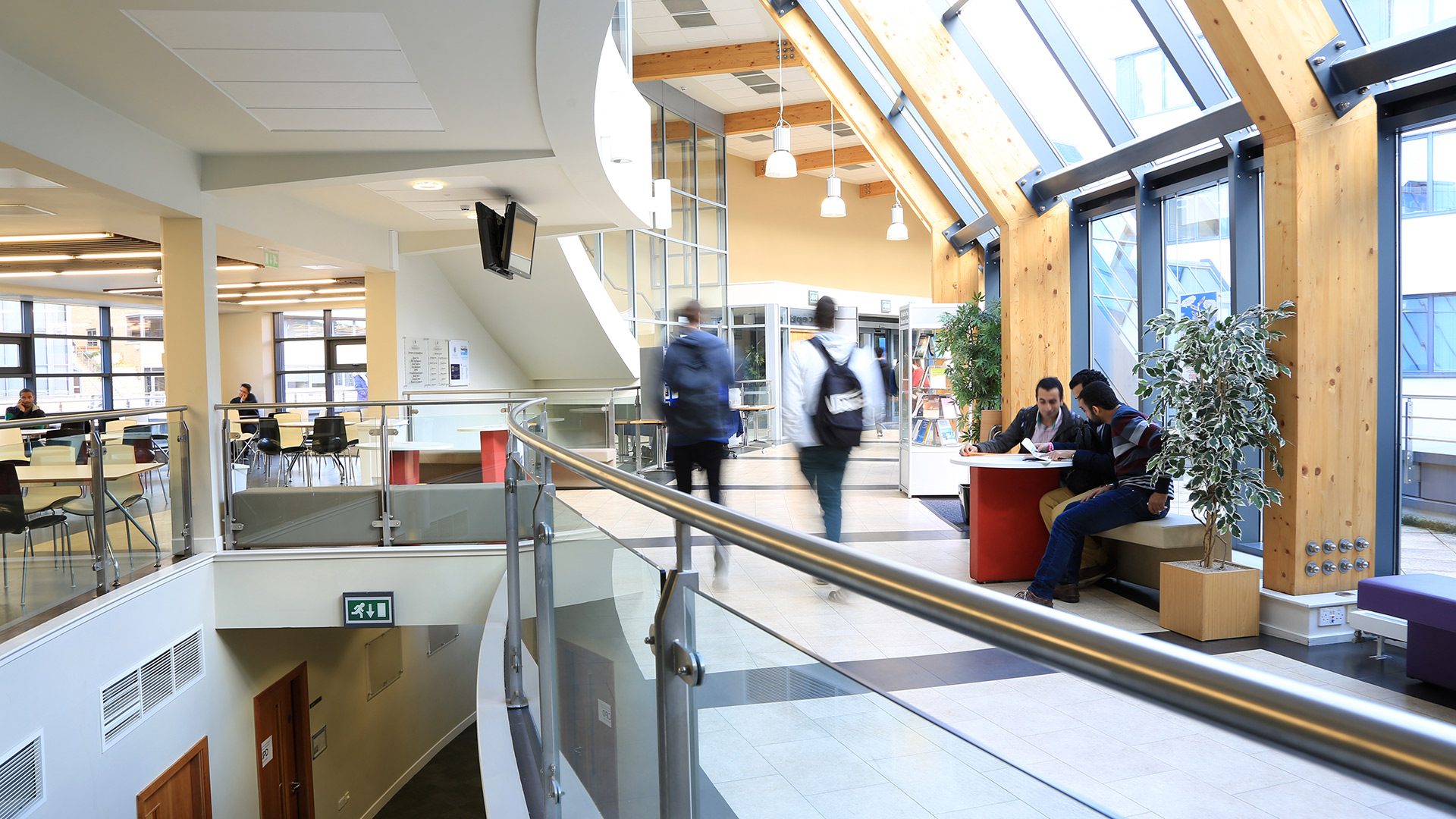
Education for SDGs in the wider community
The Business School has a long history of engagement with sustainability research. In the late 1990s, it housed the Centre for Corporate Environmental Management which focussed on supporting businesses in addressing environmental concerns; this important group is now known as SURGE (Sustainability, Resilience, Governance and Ethics). It aims to bring together researchers, organisations, and communities with a passion for achieving the SDGs by 2030 and Net Zero by 2050.
The Holocaust Centre North, partnered by and located on the University of Huddersfield campus, is a permanent exhibition and learning centre, which tells the stories of survivors of the Holocaust who made new lives in the North of England. The centre runs dedicated outreach educational activities open to local communities, including university staff, students, alumni, school groups and displaced people. Learning programmes aimed at primary and secondary students and adults, are designed to deepen knowledge and understanding of the causes, consequences, and legacies of the Holocaust.
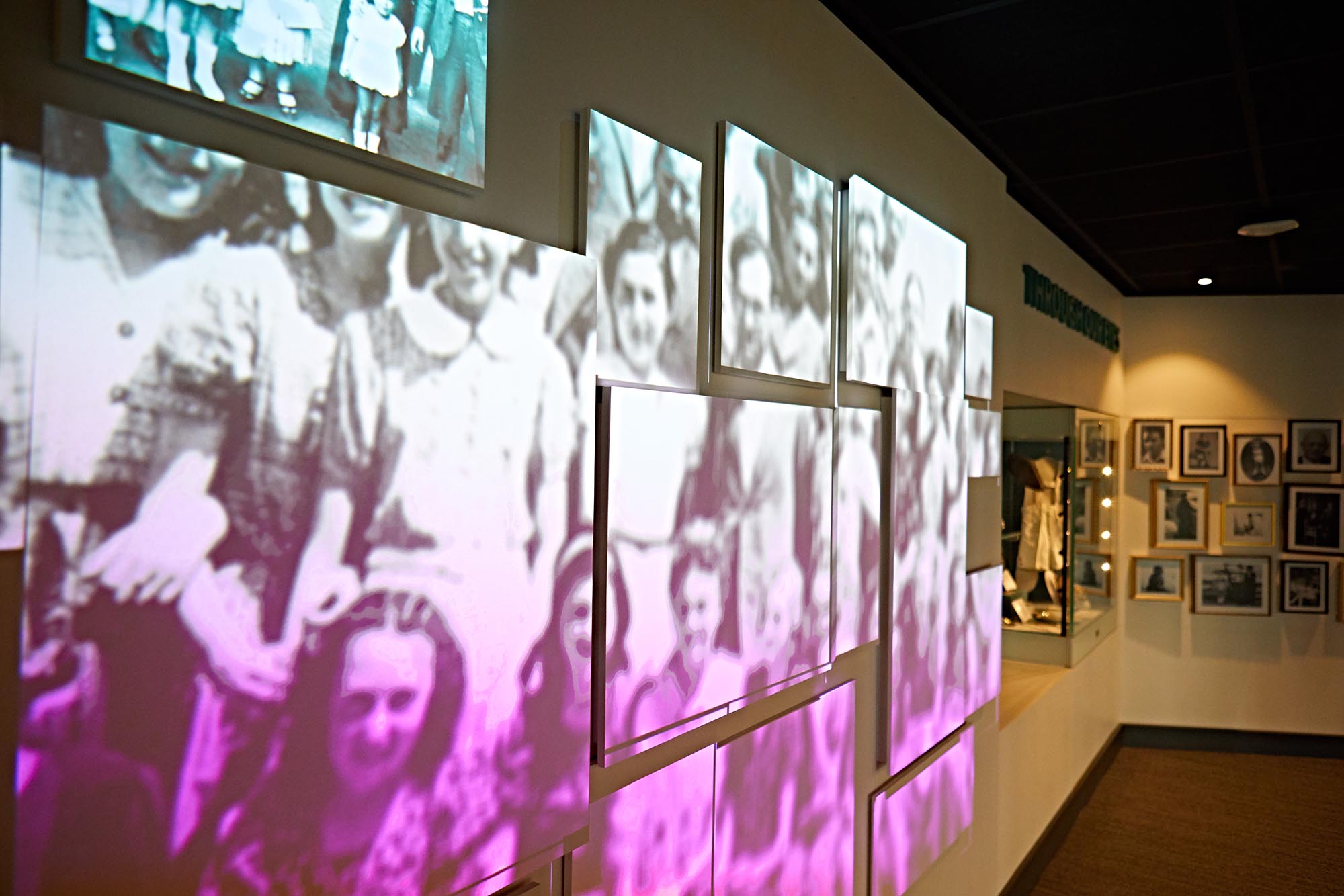
Help to Grow management programme
The Huddersfield Business School runs the Help to Grow management programme, which is now in its 10th round and has supported close to 150 people from local businesses. Help to Grow provides high-quality practical learning and mentoring, with the Business School hosting regular alumni networking events for local SMEs that allow companies to exchange valuable insights and keep up-to-date with the latest developments.
Find further information
Ways for businesses to work with us
Explore the options we offer for businesses to get involved with us from Knowledge Transfer Partnerships to programmes that offer support for business growth.
Global engagement
Our university is proud of our global community and impact from our contributions to global research and collaborations with institutions from all over the world.
Our research
We recognise the importance of looking beyond academia to research and address global challenges and make a real difference, socially and economically.
Sustainable Development Goals
Click to explore our other sustainable development goal pages and get to know how we're working towards these at the University of Huddersfield.